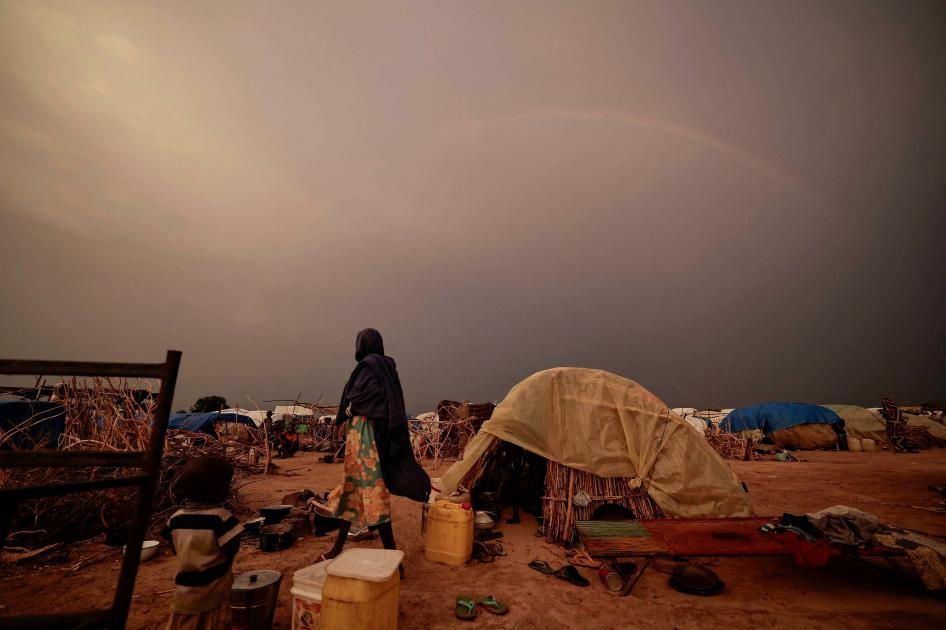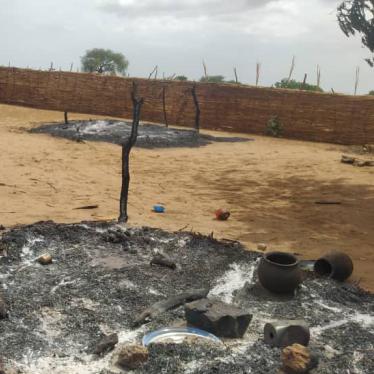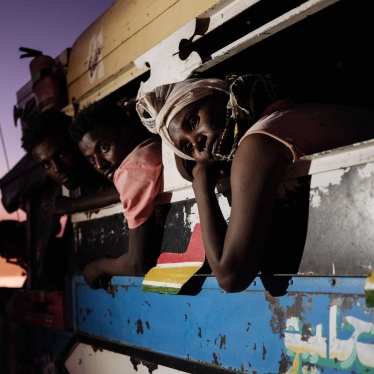Nusra and Khadija share the bond of being cousins and of living in the same small town in West Darfur. Now they share a darker bond: both survivors of sexual violence in the conflict in Sudan.
Human Rights Watch researchers spoke with the cousins in eastern Chad, while documenting abuses against dozens of survivors of atrocities committed by the Rapid Support Forces (RSF) and allied Arab militia in Sudan’s West Darfur town of El Geneina.
Nusra and Khadija, both in their twenties, told us that they were raped – three weeks apart – when RSF fighters and Arab militiamen searched house-to-house for men, boys, and weapons in the predominantly ethnic Massalit neighborhoods of El Geneina. We are using pseudonyms to protect their identities.
While Human Rights Watch and other organizations have reported on the killing of Massalit men by RSF forces and Arab militia in West Darfur, much less has been documented about the targeting of women and girls for sexual violence.
Rights monitors have reported on dozens of cases of rape in El Geneina between May and late June. Sudan has a long and distressing history of sexual violence against women and girls during armed conflict that has never been addressed. Sudanese authorities and allied militias used rape and sexual violence as deliberate strategies against Darfur’s non-Arab communities in the early 2000s and since.
Nusra described the RSF and militia’s raid on her house. “He [RSF member] said I would have to lie down. I said, ‘I won’t give myself to you.…’ He put the gun to my head. Then he raped me.”
An aid worker who also fled to Chad said some survivors accessed emergency support, but the widespread attacks on health care, including massive looting of health facilities, have severely restricted access to time-sensitive treatments.
The cousins are living in a makeshift settlement in eastern Chad where assistance for survivors is severely limited. Both struggle with horrible physical, mental, and emotional scars. “Until two days ago I wasn’t able to get out of bed,” Nusra said six weeks after being attacked.
Khadija, a single parent of three young children, told us, “I can’t be pregnant again, please help me find a solution.” We referred her to the main medical center in the camp; a few days later she found out she was pregnant. Khadija needed the reproductive care that should be guaranteed to survivors in crisis situations known as the Minimum Initial Service Package.
The United Nations Security Council, which has largely failed to respond to the armed conflict that broke out in Sudan in April, should urgently call for a briefing by the special representative of the secretary-general on sexual violence in conflict. The council should impose the UN’s Darfur sanctions regime on the commanders of the men who raped Khadija and Nusra.
Donors should provide more resources to ensure that survivors in Darfur and eastern Chad receive meaningful care, including emergency care, longer-term psychosocial and other health care, and help should they want to seek redress against those responsible.
The world should no longer be comfortable ignoring the physical and mental burden facing Nusra, Khadija, and countless other survivors in Sudan.








